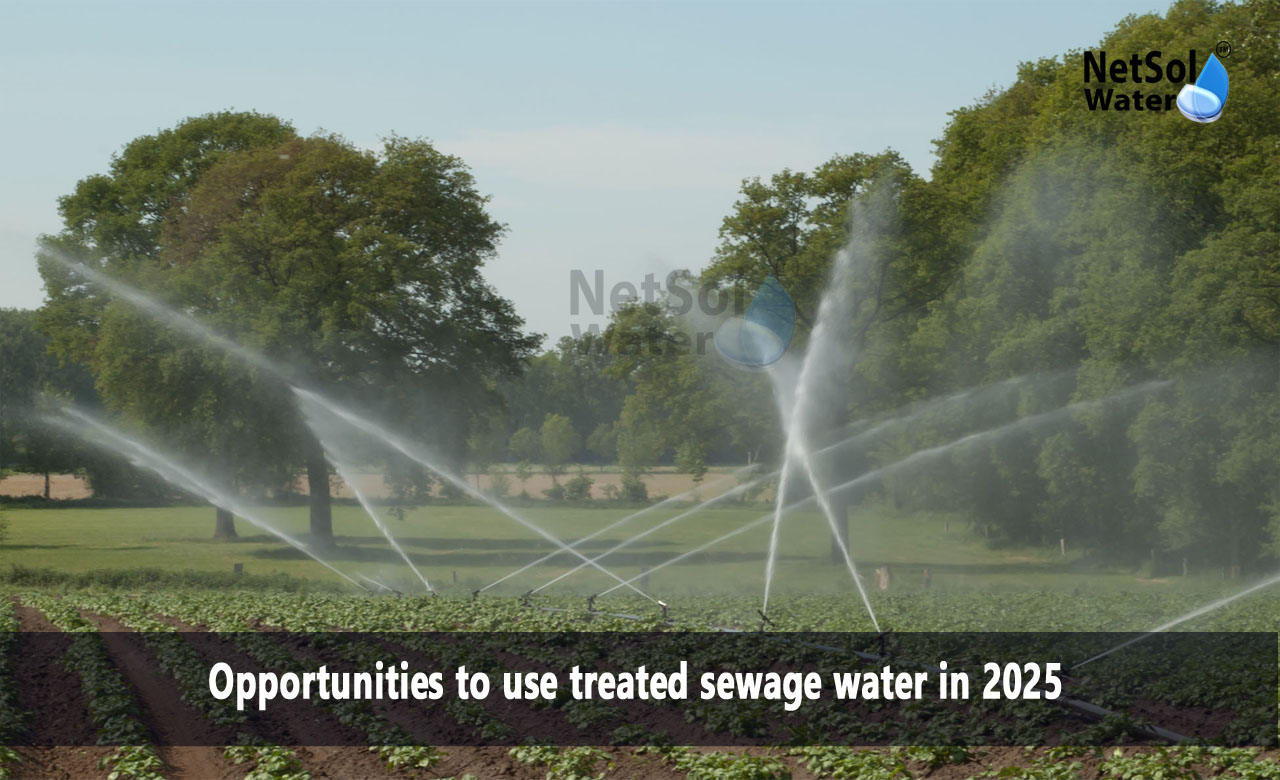Opportunities to use treated sewage water in 2025
Cities and farms face real water shortages in 2025. They collect vast volumes of wastewater every day. By treating that sewage and putting it back to use, communities can ease stress on freshwater reserves. Sewage treatment plants remove solids, nutrients and pathogens and return safe water. Using this reclaimed water saves rivers and aquifers from overuse. It also cuts the cost of pumping fresh supplies over long distances. In this blog, we explore key opportunities to use treated sewage water in 2025.
Agriculture Irrigation
Farms need reliable water to grow food for a booming population. Let us have a look at some ways treated sewage water meets this need.
Crop Watering
Farmers run drip lines and sprinklers with reclaimed water. This approach delivers moisture directly to plant roots and cuts demand on freshwater sources.
Livestock Drinking
Ranchers supply treated water to cattle and poultry. Treatment removes harmful bacteria and chemicals, keeping herds healthy and boosting milk and meat production.
Aquaculture Systems
Fish farms re?use treated water in tanks and ponds. This practice reduces pressure on rivers and lets farmers raise fish in water?scarce regions.
Landscape and Urban Use
Cities require green spaces and clean streets to thrive. Let us have a look at some urban uses for treated sewage water.
Park and Golf Course Irrigation
Municipal managers fill ponds and run sprinkler systems with reclaimed water. They keep lawns lush without tapping fresh supplies.
Street Cleaning
Street sweepers spray reclaimed water to wash pavements. This cuts municipal bills and conserves freshwater.
Fountain and Pond Features
Public fountains and decorative lakes operate on treated water. Residents enjoy these features without draining reservoirs.
Industrial Processes
Factories and power plants demand huge volumes of cooling and process water. Let us have a look at some industry uses.
Cooling Towers
Power stations and refineries use reclaimed water in their cooling loops. They lower temperatures while reducing freshwater intake.
Boiler Feedwater
Manufacturers polish reclaimed water further to meet steam?making specs. This step preserves high?grade freshwater for other needs.
Process Cleaning
Food, textile and paper mills wash equipment and goods with treated water. They cut chemical use and minimize effluent discharge.
Groundwater Recharge and Environmental Restoration
Dry aquifers harm wells and wetlands when levels fall. Let us have a look at some methods to restore these resources.
Aquifer Injection
Engineers pump treated water into underground layers. This action rebuilds groundwater reserves and supports rural and urban wells.
Wetland Enhancement
Conservation teams channel treated water into marshes and riparian zones. Birds and fish then return to these revived habitats.
River Flow Augmentation
Managers release reclaimed water into streams during droughts. This practice sustains ecosystems and outdoor recreation.
Construction and Concrete Mixing
Building projects use large amounts of water for mixing and dust control. Let us have a look at some construction uses.
Concrete Production
Mixers combine treated water with cement and aggregate. The resulting concrete meets strength and quality standards without tapping rivers.
Dust Suppression
Work crews spray sites and haul roads with reclaimed water. They reduce dust and improve air quality.
Site Compaction
Engineers use water to compact soil layers. Treated water holds particles in place and speeds up site preparation.
Conclusion
Treated sewage water offers real solutions in 2025. It boosts agricultural yields, keeps urban areas clean, cools industrial plants, restores aquifers and supports construction. Communities can harness this resource to ease freshwater shortages and meet strict wastewater rules. To explore how your region can benefit, contact water treatment experts today. Design, build and operate your own reclaimed water system. Turn today’s wastewater into tomorrow’s resource.
Contact Netsol Water at:
Phone: +91-9650608473, Email: enquiry@netsolwater.com



